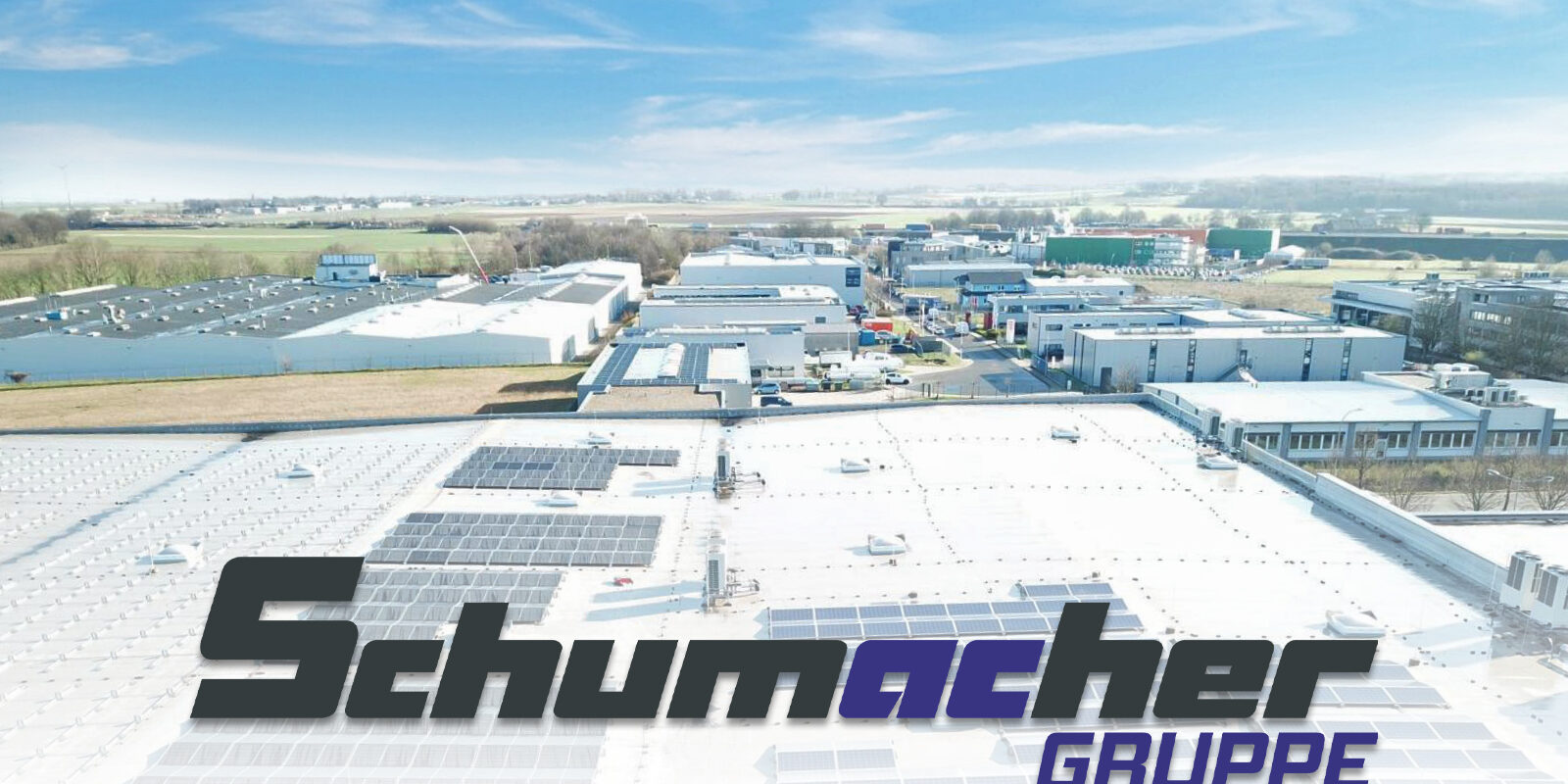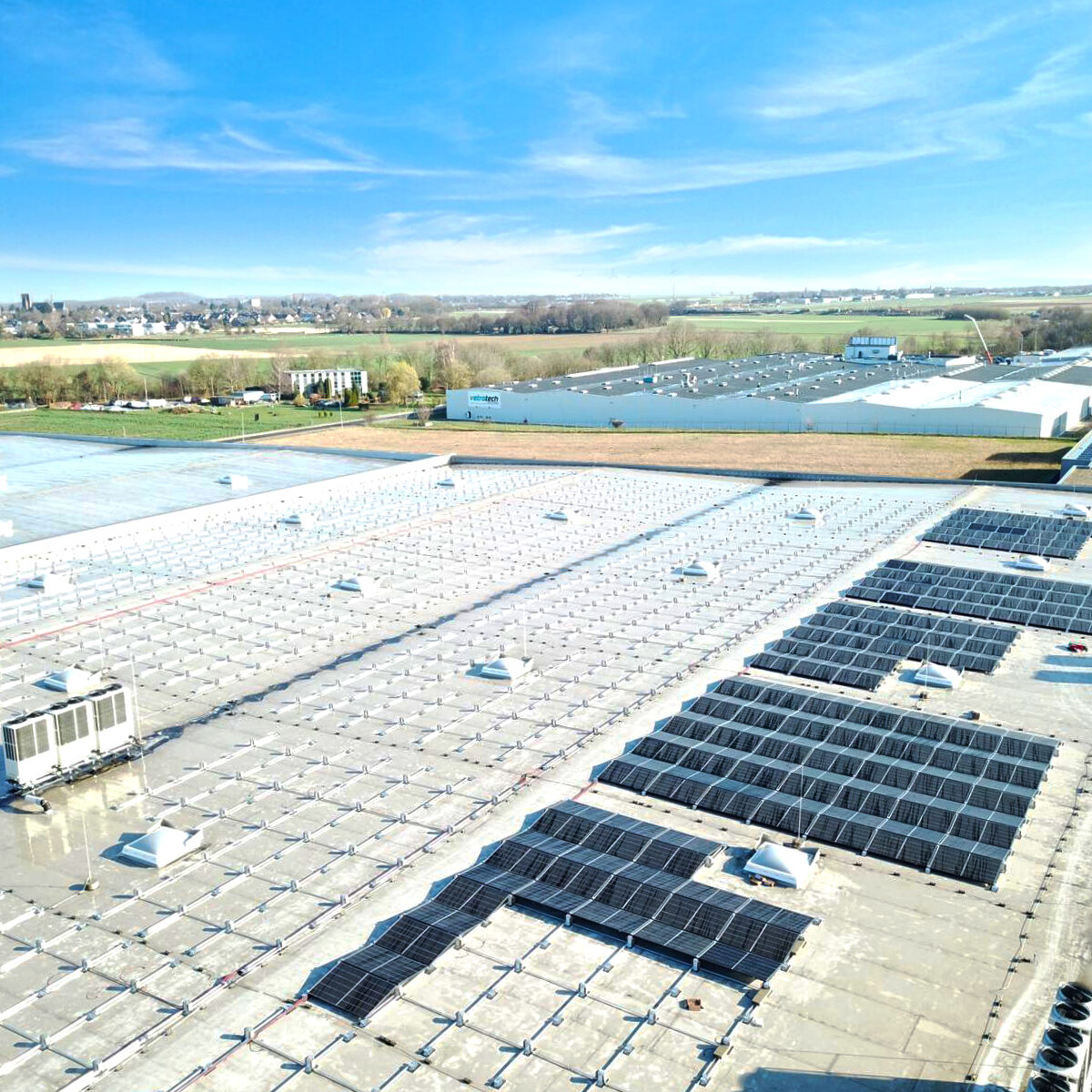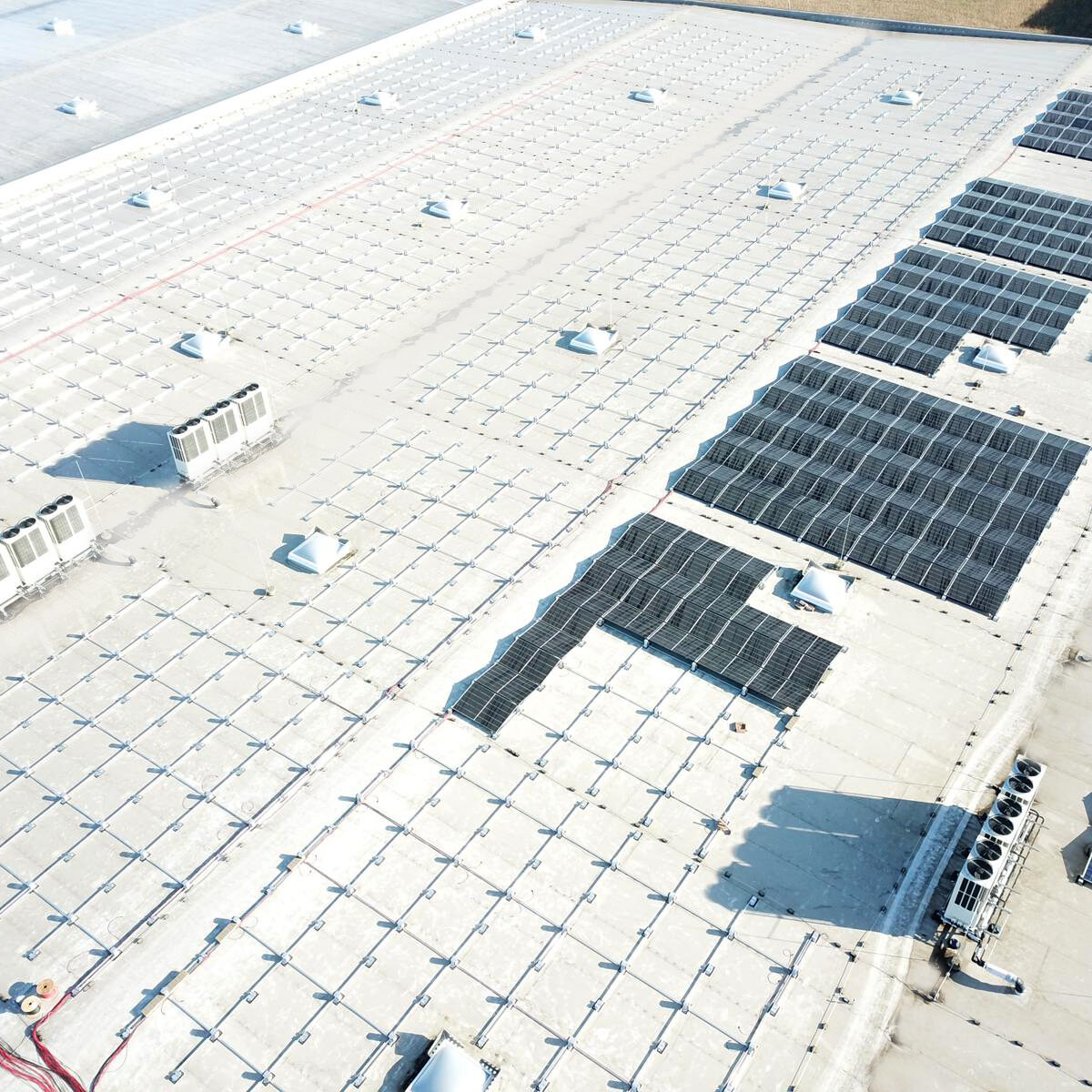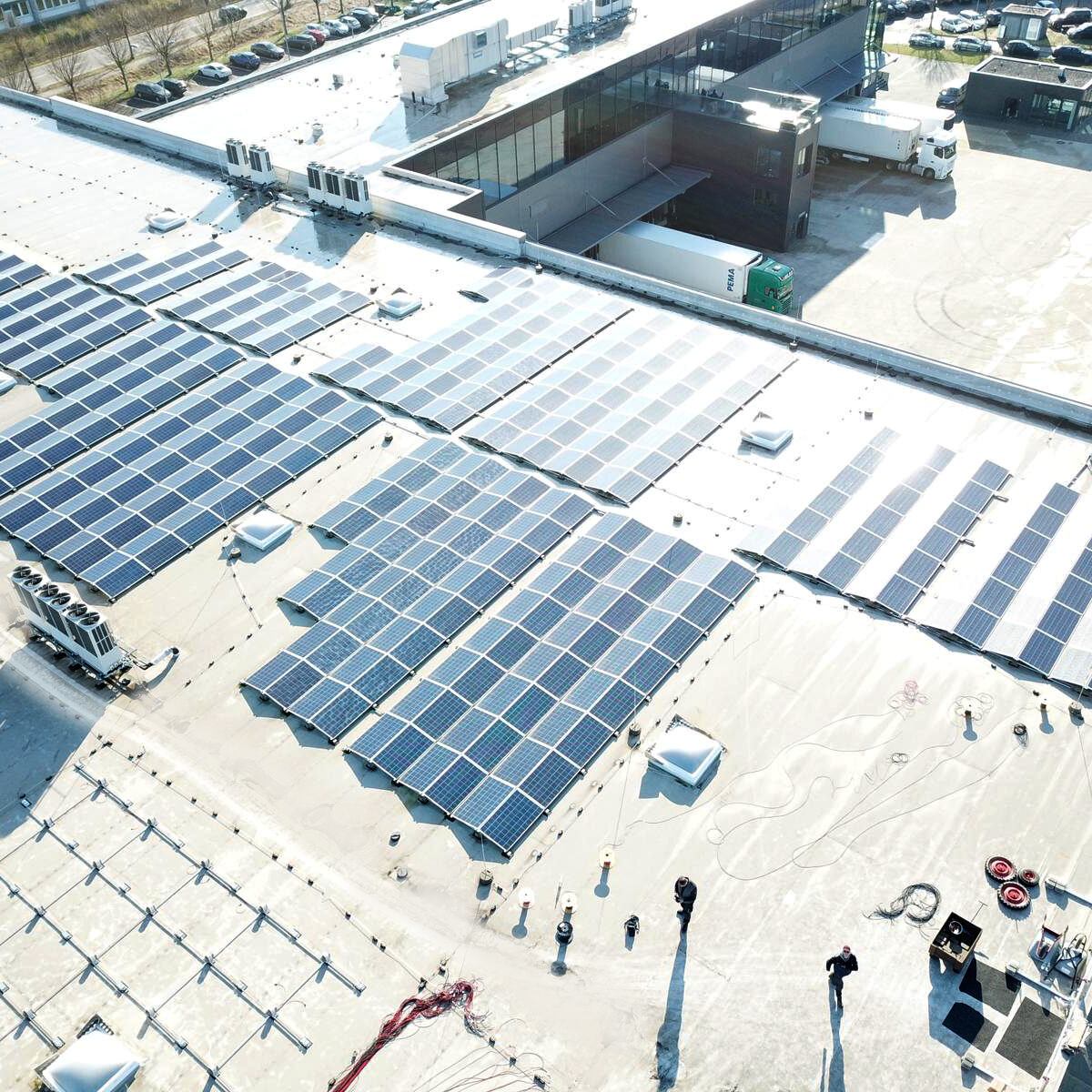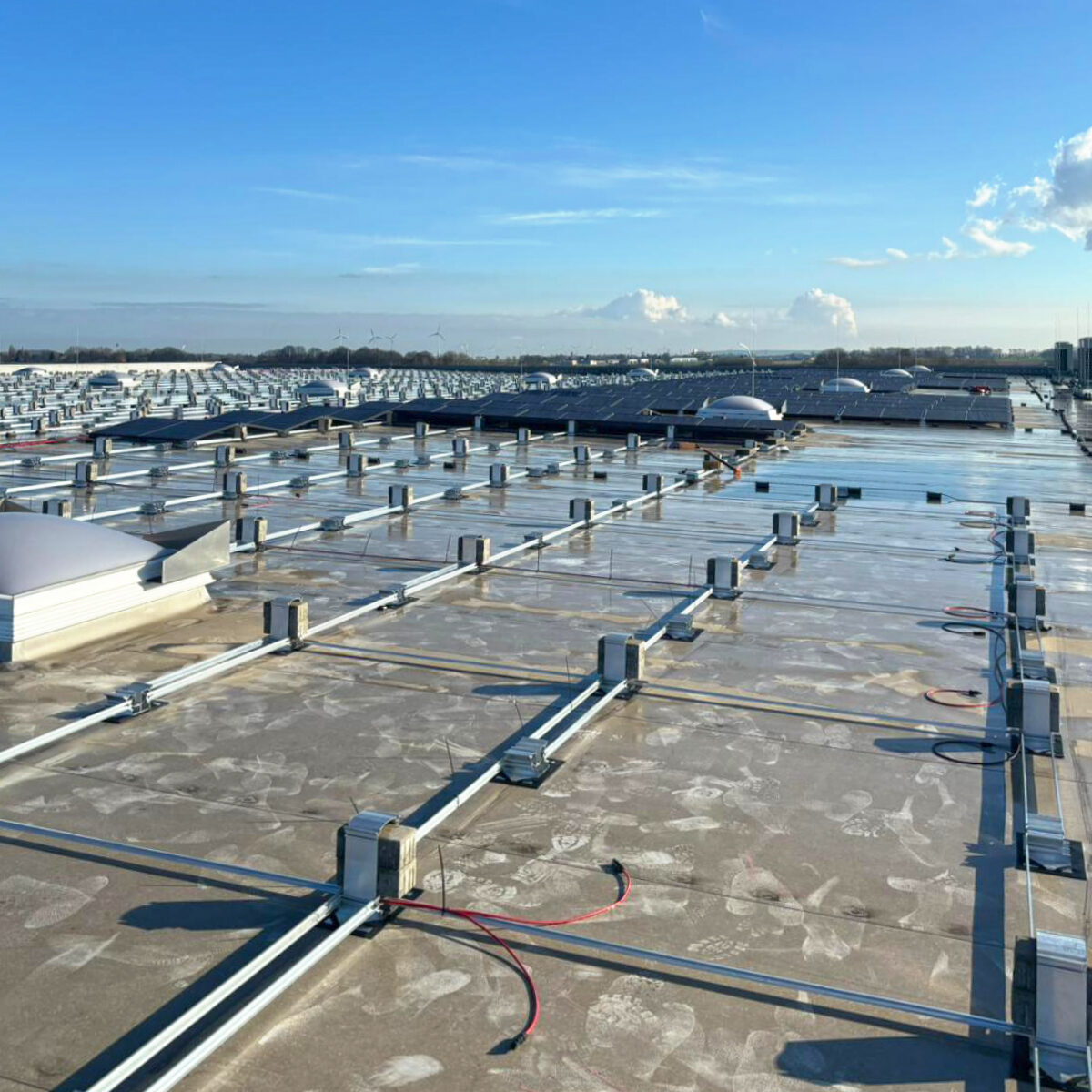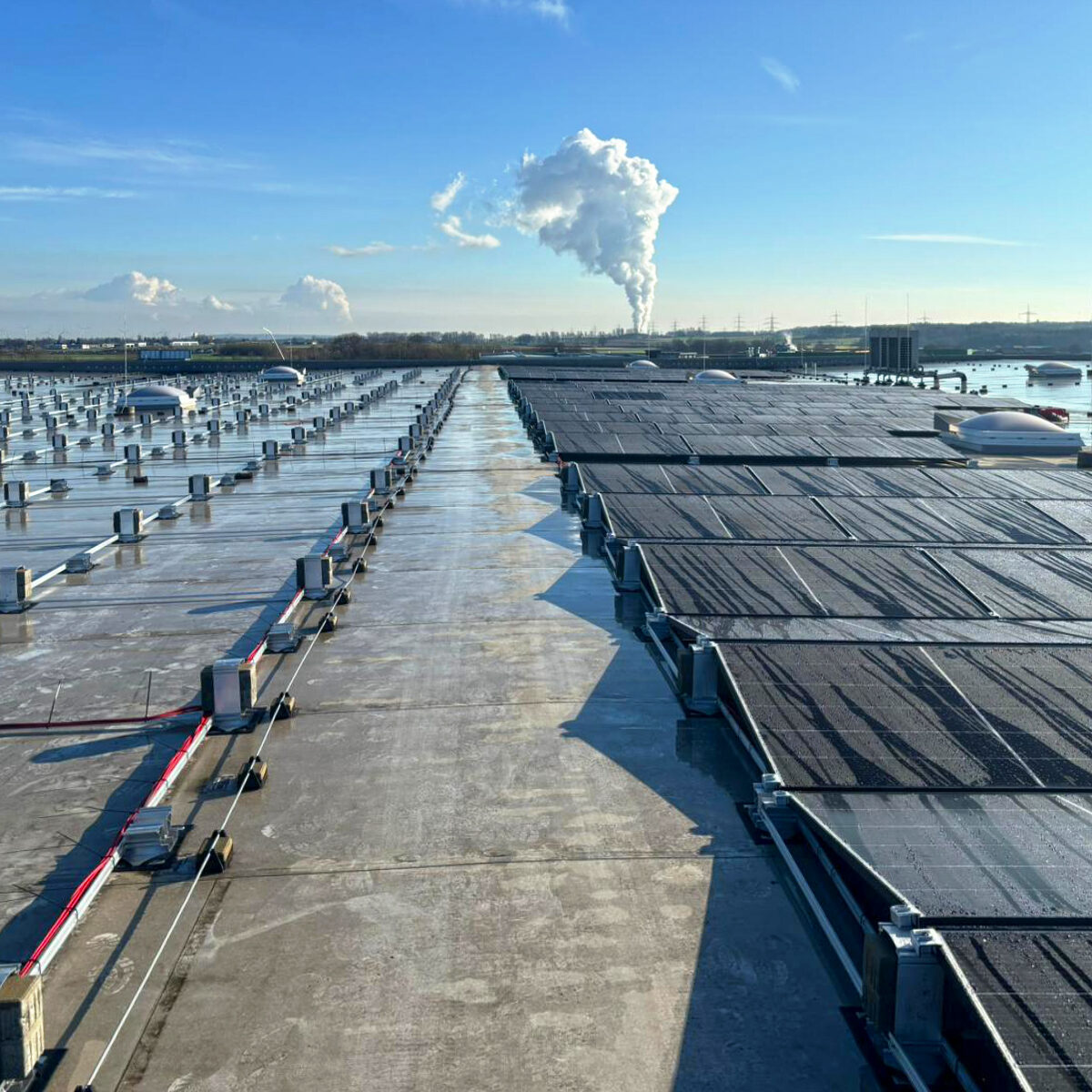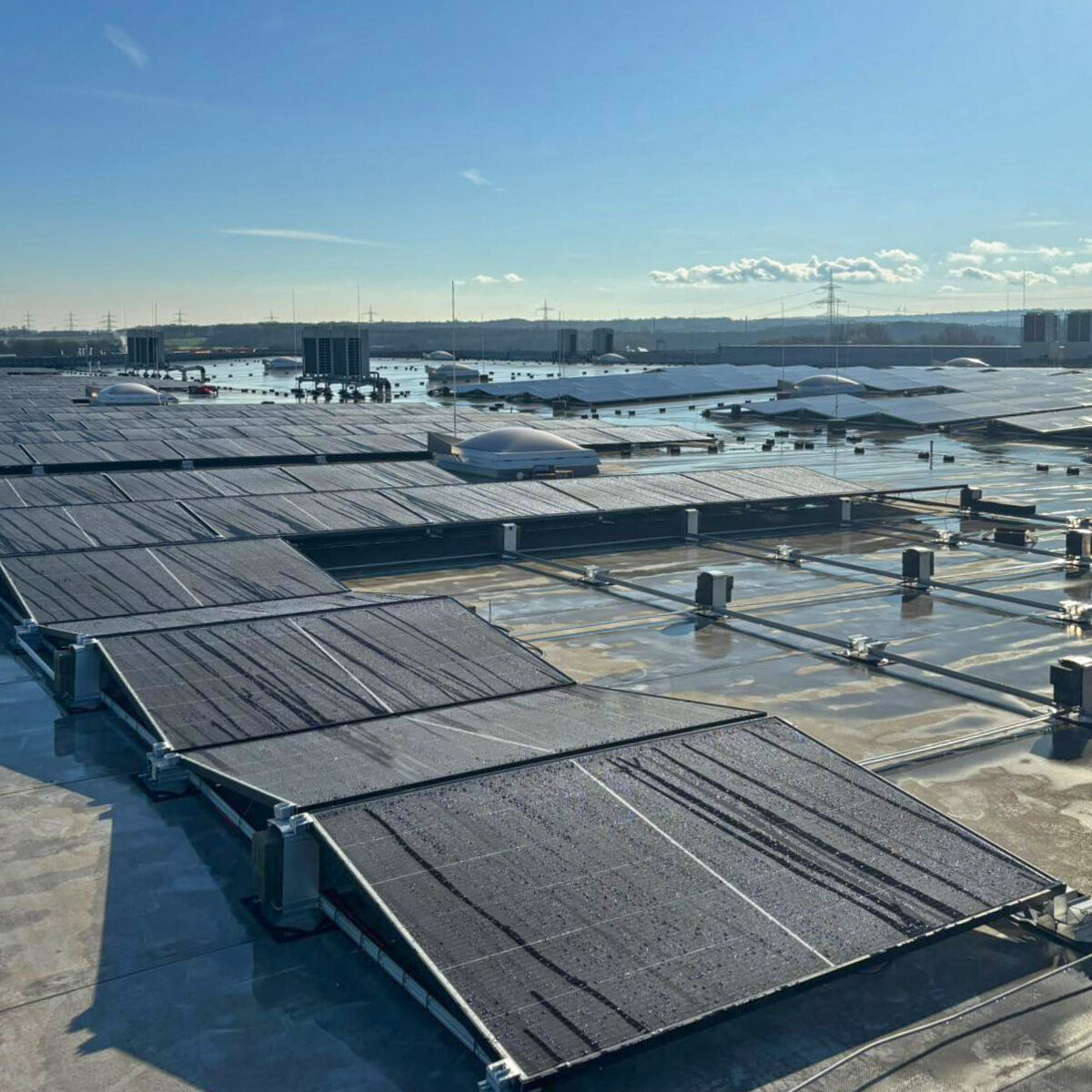State-of-the-art solar system on the roof of the Schumacher headquarters
On the entire roof area of the Schumacher headquarters, of approx. 2,820 m², a state-of-the-art solar system was installed by the company Schütz Solar GmbH , which makes a significant contribution to the environmentally friendly energy supply of the building.
The Schumacher headquarters was built according to the KfW Efficiency House standard and sets standards in terms of energy efficiency and sustainability. Buildings that are built according to the KfW Efficiency House standard are characterized by particularly energy-efficient construction and building technology. They achieve higher energy efficiency than required by law. Thanks to extensive energy-saving construction measures, such as avoiding heat loss through an optimized building envelope, we were able to meet the strict requirements of the “KfW Efficiency House 55” standard. This means that our building consumes only 55% of the energy of a comparable reference building.
The new building next to our headquarters was even built according to the KfW standard 40 EE. The EE label stands in german for “Erneuerbare Energien” = renewable energies. In an Efficiency House 40 EE, renewable energies and/or unavoidable waste heat provide at least 65 percent of the energy required for the heating and cooling supply of the house.
The solar system on this roof is an essential part of our energy concept. With 1,444 photovoltaic modules covering a roof area of approximately 2,820 m², we expect an additional annual electricity generation of around 550,000 kWh. In total, including the modules already installed in 2018, we generate up to 800,000 kWh of electricity per year with our 750 kWp solar park. It is forecast that we will use about 74% of this electricity for our own consumption, which will cover a significant part of our energy needs.
Technical data:
- PV generator output:
- Area:
- Number of PV modules:
- Number of inverters:
596.96 kWp 2,819.8 m² 1,444 5
Earnings forecast:
- PV generator energy approx:
- Own consumption approx.:
- Grid feed approx.:
- Share of own consumption:
- Avoided CO² emissions:
549,507 kWh/year 404,914 kWh/year 144,593 kWh/year 73.7% 258,217 kg/year
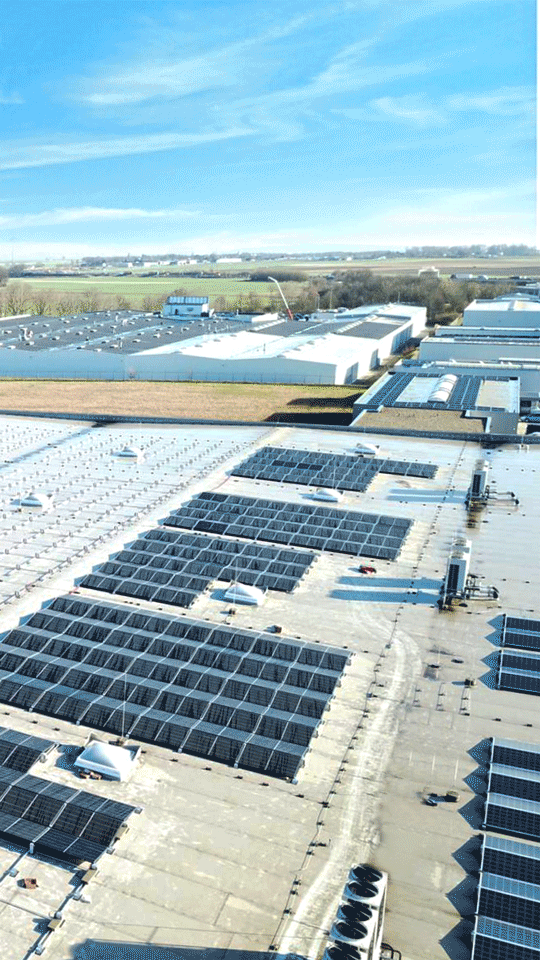
In addition to the economic advantages, the ecological aspect also plays a very important role:
Environmentally friendly energy production – converting sunlight into electricity – does not release any harmful emissions. This contributes significantly to reducing CO² emissions and protecting the climate. In our case, a reduction in CO2 emissions of around 260,000 kilograms per year was predicted. By using solar energy, we are making an active contribution to climate protection and strengthening our commitment to sustainable business processes. In addition, a solar system reduces dependence on fossil fuels and promotes the use of renewable energy sources. From an economic point of view, producing your own electricity can significantly reduce energy costs and lead to savings in the long term. The use of solar energy therefore reduces both the ecological footprint and strengthens energy independence.







